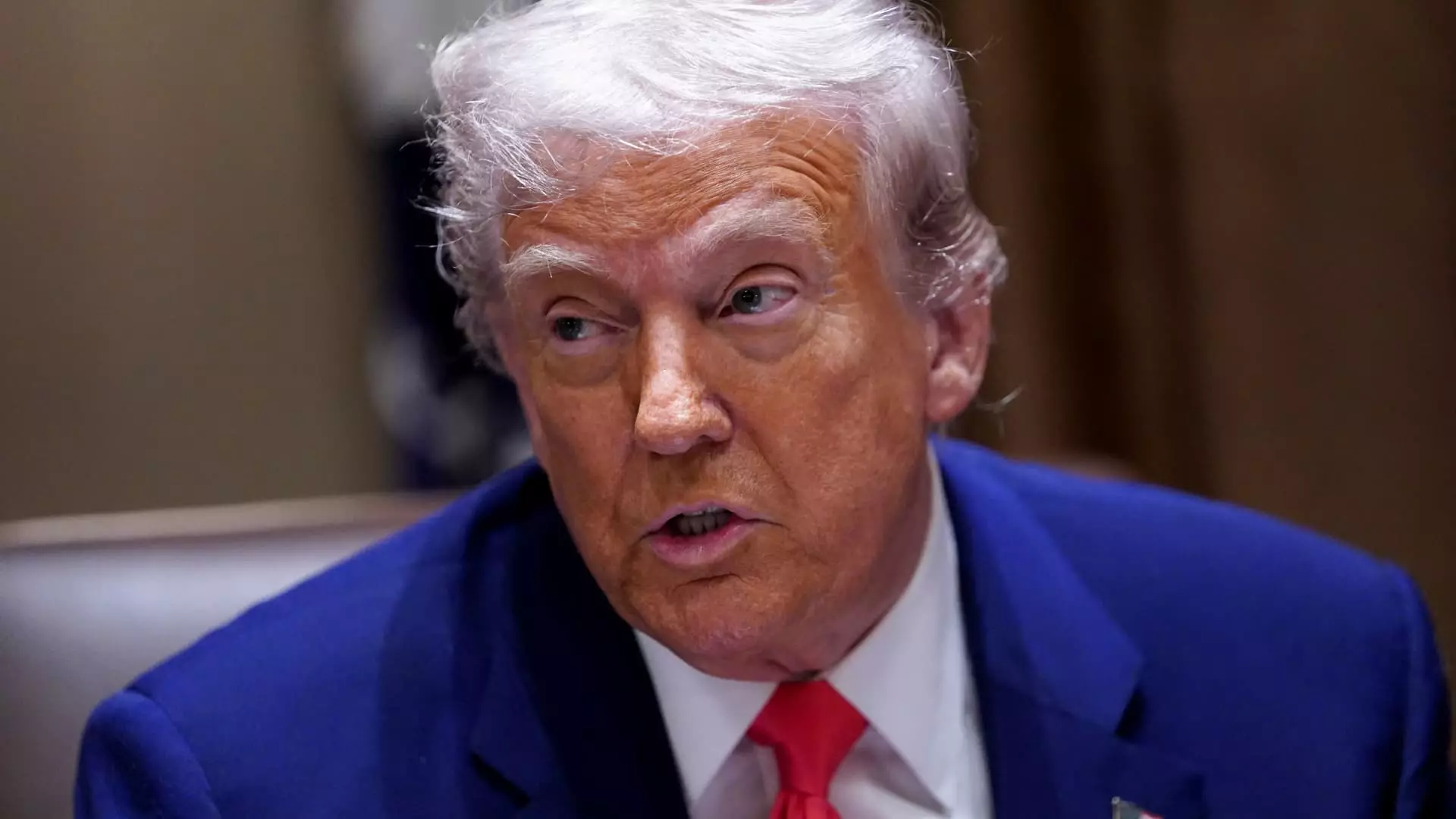The current trajectory of U.S. trade policy, especially under President Donald Trump, has raised alarms among economists and market analysts alike. As a center-right liberal, I approach this discussion recognizing the necessity for a robust economy grounded in free trade principles, but what we are witnessing is an alarming shift towards protectionism that borders on economic self-sabotage. Trump’s recent decision to escalate tariffs on Chinese imports to a staggering 145% is not merely a negotiating tactic; it marks a pivotal moment that could effectively sever trade ties with one of America’s largest trading partners.
The insights of economist Erica York are sobering. She points out that such exorbitant tariffs could lead to a practical standstill in trade, with businesses feeling the brunt of escalating costs and limited options for substitution. It’s not just about choosing between domestically sourced goods and those from China; rather, it compounds the existing economic stresses felt across various sectors. The reality is stark: rising tariffs will lead to inflated prices that the American consumer will inevitably bear. That’s evident in everyday costs for goods ranging from electronics to clothing. The question is, at what cost will we uphold this misguided nationalism?
The Illusion of Protectionism
Surprisingly, Trump’s recent temporary tariff reduction for most countries, excluding China, presents a façade of pragmatism. A 10% tariff might appear more moderate on the surface, but combined with the current escalated rates on Chinese imports, the overall protectionist stance becomes clearer. In defiance of economic logic, this approach aims to bolster local industries but does so at the expense of consumer choice and price stability. The Tax Foundation’s estimate suggesting that the new tariffs could generate an eye-watering $171.6 billion in federal revenue raises eyebrows rather than cheers; such an increase represents the largest tax hike since 1993, eclipsing anything seen under Presidents Bush or Obama. Does that reflect a thoughtful economic strategy, or is it merely an attempt to generate funds to soothe political pressures?
Moreover, Trump’s claims about improving our bargaining power with China risk igniting a trade war that has devastating implications. China’s retaliatory measures—an increase in tariffs from 34% to 84%—signal that they are not inclined to back down. The subsequent escalation of tensions is likely to reverberate across global markets, destabilizing supply chains and adversely affecting American businesses that rely on Chinese imports. The potential for every escalation to be met with further retaliatory action creates a perilous game of economic chicken with no winners.
The Illusion of Sovereignty
The reality is that while we may yearn for economic sovereignty and self-reliance, any attempt to achieve that through tariffs will backfire. Such a rigid stance undermines American competitiveness, driving consumers towards higher costs and reducing economic efficiency. It’s crucial for policymakers to recognize that globalization and interdependence are not evil but rather fundamental aspects of contemporary trade that have historically led to growth and innovation.
One cannot help but feel that the current trajectory of U.S.-China trade relations is symptomatic of a deeper ideological crisis. The push for economic nationalism fosters an environment that stifles competition, inflates prices, and risks long-term economic stability. As we navigate these choppy waters, it’s imperative that we reclaim a balanced approach to trade—one that embraces free markets rather than constraining them with shortsighted and punitive tariffs. This is not just an economic issue; it’s a question of whether we want America to remain a bastion of opportunity or devolve into a realm of economic isolationism and decay.

